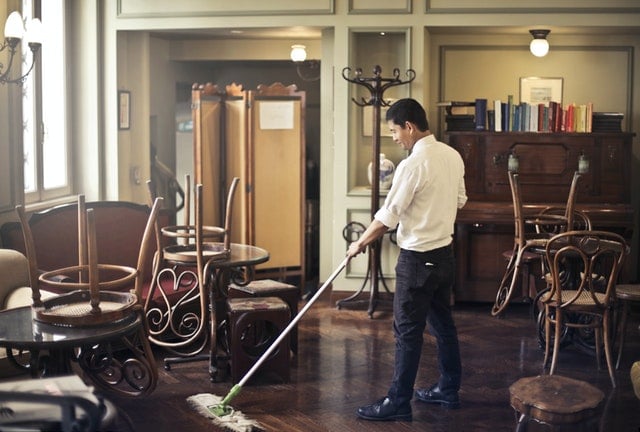How to Clean Your Workplace Effectively

The importance of cleanliness became apparent as a result of the coronavirus. The pandemic showed how easily germs can spread through the contamination of surfaces. Therefore, cleaning and disinfecting surfaces can reduce the risk of infection in addition to being a hygienic practice in its own right.
The Steps for Cleaning Effectively
Firstly, you should always consult the guidelines and regulations that are specific to your industry or facility. That being said, the basic steps are as follows:
- Clean and disinfect areas and equipment between tasks or consumers.
- Clean as you go, do not leave spills or leakages to stand; take care of them straight away.
- Use products that are suitable for the task and check the manufacturer’s guidelines.
- Do not let waste build up; dispose of your waste regularly and suitably.
- Implement a cleaning schedule to ensure that all surfaces and equipment is cleaned regularly.
Sub-par hygiene standards and unclean environments lead to failed inspections, a bad reputation, and failure in the most extreme cases.
Creating a Cleaning Schedule
Take stock of your business and work out what needs cleaning or disinfecting and when it should be done. Creating a physical schedule can act as a good reminder for you; try to include what needs cleaning or disinfecting, when it should be done and how it should be done. Most people also like to include instructions that detail the procedures and products that should be used and how the products should be used, too, including any dilution or contact instructions. If you are unsure, consult the manufacturer’s instructions, it can also tell you how the products need to be stored too.
Get The Right Cleaning Products
This again depends on the type of industry you are working with. For example, all businesses will need disinfectants, but those who work with food need to make sure that their disinfectants are food safe. Pay attention to contact times because that can speak to the efficacy of your efforts. Detergents are great for cleaning surfaces and removing grease and more viscous substances, but they do not kill bacteria and viruses.
On the other hand, disinfectants do kill bacteria and viruses, but they are best used on visibly clean surfaces. This is because they aren’t particularly effective if the surface is already covered in grease or dirt. Distilled water can also be an incredibly useful cleaning tool. You can substitute tap water for it when diluting cleaning products. It is especially good for windows and mirrored surfaces. You can buy distilled water online from Golyath; they also have a number of other cleaning products too.
Lastly, sanitisers are essential. They can clean off visible dirt, grime and grease as well as kill germs and viruses. In addition, they can be used to sanitise a number of different materials, including your skin.
In Conclusion
The hygiene practices that your business implements are incredibly important. If a governing body inspects you or if one of your customers thinks that you do not take the cleanliness of your premises seriously, then your reputation and your profits can suffer.



